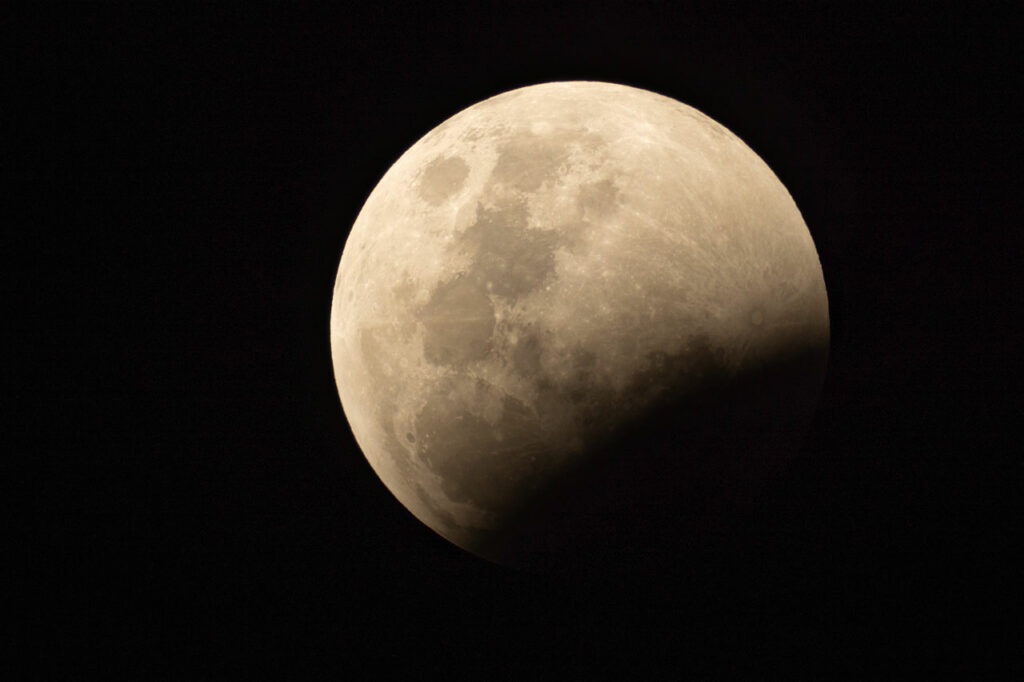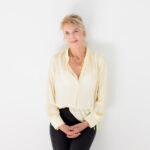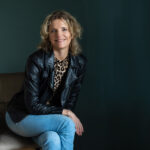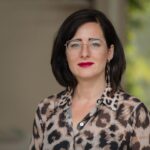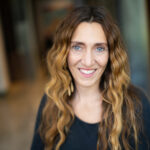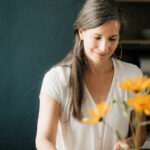“It is still not quite acceptable to say: ‘I don’t want kids, we’re not having kids, or having kids is not our purpose in this life.”
Amber
An interview with Amber from Australia
How was your relationship with your mother?
The lack of self-worth that my mother was in, meant that she was always in competition with me. Constant comparison and jealousy, which was always a puzzle to me, as she was absolutely stunning looking and super beautiful in the moments she would let go of the need to please others and seek attention. I could always see her beauty, but it was more that, as in those moments, her beauty would shine more greatly. If I had friends over, she would always approach us to hang out with us, to appear to be one of the ‘cool’ mums, but she was actually imposing on the group and fighting for the attention of my friends. These types of scenarios played out no matter who was in the room and not just specific to my friends. She was in the identification of being gorgeous, but then also very insecure. My mother worked in the tv-film industry, so she obviously knew that she was good looking. But she was validated by what others told her, instead of realizing her worth in full. The insecurity was always there however, and in turn, the need for confirmation from others. I would always diminish myself and make myself small, so that she could shine. I didn’t want the comparison. It was easier for me to just hide and let her be the star, so to speak. It would quickly be overridden if I did shine, so I would let it be about her, rather than challenging that.
Did your upbringing and the relationship you had with your mother have an impact on how you viewed motherhood?
Growing up I felt like I would love to be a mother. I was always around a lot of kids, which I loved. Anyone that would want babysitting, I would put my hand up for straightaway. So yes, I did feel like potentially I would be a mother, because, within me there was a very strong connection with young people, and still is now, which is super beautiful. Becoming a mother felt very natural for me, and interestingly my mother would often say to me that I was the one mothering her, and within the last few days of her life, she thanked me for how I parented her.
Was that feeling still there when you got older, and did you feel any pressure from around you to become a mother?
As I became older, I realized that it is actually people I love, and that becoming a mother was not really necessary. I do love the purity of younger people and I think that’s why I was so drawn to being around them. Younger people just say it as it is, whereas I struggled a lot with all parents, or actually adults, lying to me. I just kept saying, “You’re lying, why do you lie?” Several times the answer would come back as, “One day, you will understand, when you are older.” With children, there is no holding back; they just say straight out, “You smell like poo” or whatever they say. There is no filter.
I did feel the pressure in general, and my mother did make comments like, “You will understand when you have kids.” I don’t know if most parents make those sorts of condescending comments. It wasn’t explicitly said that I needed to get married and have kids, but there was an underlying pressure that you could feel coming through.
When a woman turns thirty, the pressure to become a mother seems to be more intense. Is this something you have experienced as well?
Yes, when I hit my thirties, I started to get this, “You better hurry up, the clock’s ticking. If you don’t have them soon, you’re not going to get them” sort of stuff being directed at me.
Did this influence you?
I feel like there were most definitely some moments of thoughts like, “Oh, actually if I don’t hurry up, then I will miss out.” There was an investment in potentially having kids. When I met my husband, something totally shifted, because he was the love of my life. When you get together with someone, there is this moment that you have the conversation about children. Do you want kids or not? Our view on this together was, “You know what, I’m with you, you’re with me, if we have kids, then we will. If not, that’s also fine.” For us, it was more about the relationship; that was our number one priority and responsibility at that point.
We met when I was 32. When we were around 36 or 37, I received comments like, “Oh, you are going to be a geriatric mother.” Apparently, that means when you have babies after the age of 35. Here in Australia, it is hideous when you want to become a mother after this age. You enter this new phase, a danger zone, and there is a lot of fear fed to you. There is a big chance it’s not going to happen, and you will need support. You know, it’s all these things that kick in. It comes from many angles, like magazines, books, and through people around you who do have kids. They will say, “Oh no, you’re going to need IVF”. There’s a lot of pressure and this urgency thing really kicks in and puts pressure on your body for sure.
When you met your husband, did you have any thoughts or pictures that he could be the father of your children?
No, there was nothing there. I wasn’t even needing to be married to him. It was just simply like, “This is it; this is true.” I felt the joy of being with him and my entire being felt the wholeness. Friends come to us and say, “Wow, that’s just off the charts,” because of the way that we are with each other; the flow and the ease. But it’s a great question because what was it like for my husband? How does a man feel at that age? And whether he wants kids as well, that’s also part of it. He was like, “If we don’t have kids, we don’t have kids. I just want to be with you.” We were very clear on that, which felt super simple and great. But then along the way, of course, you know, when we got to about 37 or 38, something changed. We were naturally in the lovemaking; we never used contraception.; and nothing was happening.
Did you ever have thoughts like – mmm, maybe this month I will get pregnant?
Yes, I did. I had times that my period was late, and I’d go, okay, maybe we’re pregnant. And then you know, you get a pregnancy test – and it’s negative. Maybe the test is not correct, and I would get another one. That energy sucks you into making that the focus and it becomes the focal and end point. And then that energy comes into the relationship, and you start going, okay, now we need to make love every second day and so you start changing the natural way of how you make love into this robotic mechanical way.
”It becomes a requirement that ‘we have to work around ovulation’. So, you have sex a day before, the day after, and all this sort of rubbish that you get told you have to do, and yes, it’s very easy to get caught in that.”
And I would say there were moments where we were caught up in that for sure. It was quite challenging for a while to stay in that exploration phase, where either way it is fine. I couldn’t hold that. Not at all.
What happened when you turned 38?
I said to my husband: “We are now 38, do you want to give IVF a try, just to make sure that we’ve definitely covered our bases to see if it is there for us to raise a child?” And he agreed: “Yeah, cool. Let’s check it out.” So, we went through IVF procedures. I didn’t have very many eggs left and he had motility sperm stuff going on. But we felt to give it a go.
What was your experience with IVF?
For me it was disgusting. Literally, it felt so cold and hard. And you know, they were sort of probing my body and checking, counting my eggs, and it was all very clinical. It felt invasive on my body, but also in general. It was very imposing; the questions they ask you and then how they approach your body. Given that my body is so sensitive, and I honour the levels of sensitivity of my body. And then my husband had to do his sperm checks and so forth. They put him in a room with porn, and he was not into that. He had to then perform in this room. It’s gross.
“IVF is not an honouring process for a woman.”
And then when I was at the point in treatment where they extracted my eggs, they said to me that they will write on my hand how many eggs I have left. They said, “When you wake up out of the anesthetic, you’ll have a number on your hand.” I woke up, and there was no number on my hand. I was dazed and confused. And then when they came over, I asked: “Where’s the number? Did something happen?” I thought something had gone wrong. And then all these thoughts came flooding in, until they said, “Oh, no, sorry, we got three eggs.” There was such a lack of care because they actually only had one viable egg. “We burst one of them,” they said, “and the other one we’re not too sure about. I felt the lack of care from them when they were speaking to me. I was not shocked, but I was like: what does this mean for us next?”
Throughout the treatment Amber was given hormones, which according to her was “horrendous”.
I felt bloated and totally crazy. After the egg harvesting was all completed, we had to wait a certain period of time, before we could try again. I recall, between the two attempts, saying to my husband, “I don’t even know if I really want to do the second one.” At that point, he was convinced he wanted to do it. I replied: “It is a lot of pressure on my body, I’m not really sure that that’s going to be great for me.” “Can we just try one more,” he asked. And I gave in with an “okay.” At that point I wasn’t holding myself sacred enough to be able to say, “That’s it.” With the second attempt we didn’t get any viable eggs. And I said: “I’m done. I’m not putting any more hormones in my body.
Following the IVF attempts Amber became very ill. She was diagnosed with glandular fever immediately after doing the second round of IVF. That turned into long-term chronic fatigue.
What was it like for you when you realized that there was not going to be a pregnancy?
I did have a tear when I came out of that IVF process, and they said, ‘no eggs.’ I’d be lying if I didn’t. But acceptance came fairly quickly with a sense of okay, cool, that’s now complete. Even though there was an investment in the outcome, it was interesting though, how quickly that was gone, and we moved on to what was next. I felt really free, like I could simply get on with what I have to do. It was almost a relief. My husband felt that we had given it a very good go and that it was always about us first. He would have embraced the responsibility of a child but was very clear from the beginning, that this does not change anything for us. It was not a relief for him, at that point, as he was open for adopting. It wasn’t final for him. In society, there isn’t a strong message that you get on with the ‘other’ thing, because it seems there is no other thing. The main thing is you have to be a mum. When in fact, no, there are millions of other things. And as for getting on with other things, it was very easy. Having a child was not a need. We give it a go, and if it happens, it does, or it doesn’t. I was relieved that my body did not have to go through all the probing ever again.
One of those ‘other things’ was spending time with her godchildren. Amber shares that she and her husband suddenly ended up with sixteen of them.
We didn’t have to have children because we have sixteen godchildren we are parenting. They are all children of friends who have asked us if we want to be there as guardians. They have written in their wills that if they should die, then we will care for their children. We are actively involved in their lives; they come over and stay. There are about six children that live locally, who we see regularly. And with the other ones, we do Facetime.
Looking back at the period when you were having IVF treatments and where you are now, what have you learned and realized from all of this?
Having the opportunity to speak about it here with you feels different. I can actually see more clearly the way I am with my body now and have been for a while. At that time, I was 39, I’m 46 now. So around that time, I can now see when I’m talking, that there remained a lack of self-honouring, not holding myself in the level of honouring that I do now.
I actually knew not to do that second round of IVF, yet I went ahead with it. Some part of me was pleasing my husband and there was the idea that you want to make sure you’ve crossed everything off, to be certain that not having kids was the way for us. And that’s another lie we are fed.
You don’t need to do that. We as women already know what is true for our body. When we did the IVF, there was a constant sense at some point, that this is not the truth, “I’m not supposed to be a mum in this life” but nowhere in the process was I confirmed in that it is normal to feel this way. It is as though you have to say, “We’ve attempted everything”. But you can see the justification in that? Or we could say, “Oh, we tried, you know, we did two IVF rounds, but it didn’t happen.” When, if we were honest, we would say: “No, it’s not for us.”
Have you experienced people feeling sorry for you, or sympathetic, because you don’t have biological children?
Absolutely. There is an imposition on women, that if you don’t have kids, you are not complete or there can also be sympathy – poor you, you can’t have children. You must be devasted. It’s made out to be a big deal when you don’t have a family. And then there are those comments like, “You haven’t really lived unless you’ve had kids.” Or that you don’t understand unconditional love because you don’t have children. Or there is something wrong with you as a woman because you don’t have children. Having children is considered to be the ultimate form of femaleness and nurturing. That is the picture you are being fed. It’s all those horrible energies that come at you and it is just a setup to get you to react. There have been moments where that does creep in at some point. In those moments I felt like, “Leave me alone, get off me.” The energy that was coming towards me felt disgusting and invasive. It is still happening today. I was taking balloons home for my husband the other day, and someone asked, “Are you taking them home for your kids? No, we don’t have kids.” The assumption is always there.
It can also happen with godchildren or nieces and nephews, that the role of aunty, caregiver or guardian is offered as a consolation, or a particular status to make things more comfortable. Is this something you have noticed?
Yes, totally. I have even called out my friends on it. “Hey, don’t ask me unless you genuinely want this. Don’t feel sorry for us because we haven’t got kids.” And they would say, “We do this because we love you and the relationship you have, that is what we want.” A lot of them have broken up with the fathers, so they see us as very solid. They come to us for relationship advice and leave their children with us because we are steady.
Amber shares that children don’t define you as a woman and that having children is a responsibility.
It is more of a job, and not this thing you just do. Having children is not about making your life better or fulfilling a need. I feel the responsibility with our godchildren. We are still a very strong part of their life. They appear and we are there. We invite them, and one of them might live with us soon. If you stay open to how life unfolds, it presents what is needed. It is not about birthing; it is about being available for those around you and who call for guidance.
Do you have any realizations that you could share about motherhood and life?
That you want to be sure that you really are having children for the true reasons and not just for an ideal or picture. Prince charming is in every storybook and the woman is the princess in distress; the poor princess in the castle waiting for the man to come and rescue her. And then they go off and live happily ever after and have lots of babies. All this story stuff gets imposed from a very young age. Even if we’re not really aware of it, it’s always there, like an unseen force. It is not about having children or not having children in your life. It is about being responsible for what is needed, and this can be many different things. There is something for everybody to respond to in life.
Living a gapless life
I don’t have to justify anything. Sometimes I say, “I have sixteen godchildren”, but I don’t even need to say that. I don’t have to say anything even though I love them, and I love expressing about them. They are part of our life, so it makes sense to talk about them if it is relevant. The thing is, I don’t need to fill a gap in my life because I don’t have children. There is no such thing as a gap. For a lot of women though, that seeming gap stays with them until they die. It is this constant belief that something needs to be fulfilled – that we are not enough. But…we are already everything, nothing else is required.
✺
